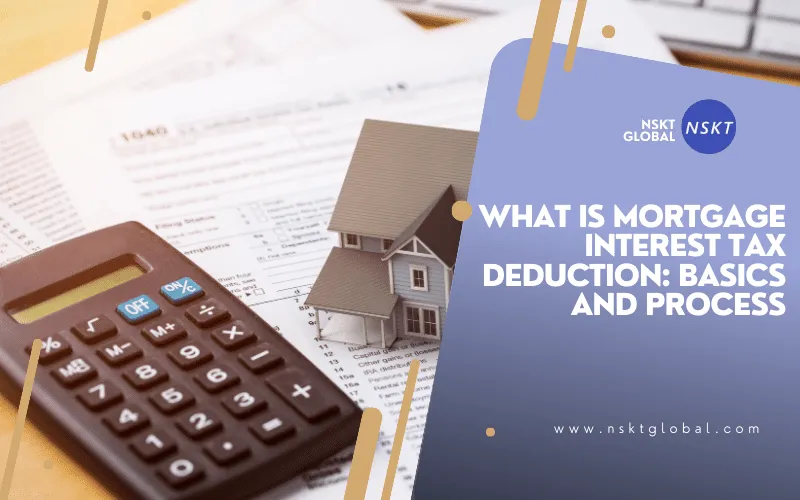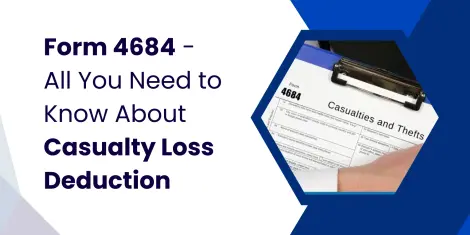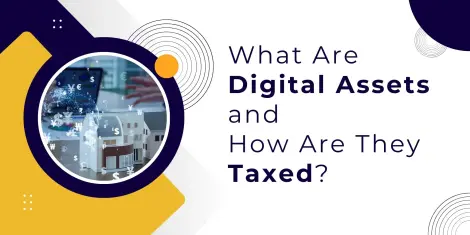Table of Contents
A mortgage interest deduction is simply like a financial benefit that is specially designed for homeowners at the time of tax filing. It allows you to lower the amount of income you are taxed on by subtracting the interest you pay on your mortgage. So, if you own a second home with a mortgage, you can still get in on the tax break, as long as you stay within the limits set by the IRS. An individual may claim an itemized deduction for qualified residence or home mortgage interest Schedule A (Form 1040). Mentioned below are the scenarios that qualify as qualified residence interest.
- Home Acquisition Debt(After December 15, 2017): The interest paid or even accrued during the tax year on home acquisition debt used to buy, build, or substantially enhance a qualified residence. that the debt does not exceed $750,000 ($375,000 for married filing separately).
- Home Acquisition Debt(Before December 16, 2017): The interest paid or accrued on home acquisition debt used to buy, build, or substantially improve a qualified residence, not exceeding $1 million. ($500,000 if married filing separately); and
- Home Equity Debt(Before December 16, 2017): The Home equity debt secured by the residence before December 16, 2017, provided that the debt does not exceed $100,000 or the residence's fair market value reduced by any acquisition debt.
What is the Qualified Residence Definition:
As defined for tax purposes, a qualified residence comprises an individual’s principal residence and one additional dwelling, such as a vacation home. The primary criteria for the secondary residence involve its usage, especially if it is rented out at the time of the tax year. In this situation, the taxpayer must follow a specific set of guidelines to maintain the property’s qualified status. The taxpayer must reside a minimum of 14 days in that home or adhere to the 10 percent rule, using the residence for at least 10 percent of the total days it is rented out at a fair rental value.
This balance ensures a balance between personal and rental use, preventing the second home from being exclusively for rental purposes. Meeting these criteria permits taxpayers to secure qualified residence status for tax deductions, encouraging dual-purpose utilization of additional properties.
Understanding the Mortgage Interest Tax Deduction Process:
The mortgage interest tax deductions permit you to deduct the interest paid on the first 750,000 of your mortgage debt for either your primary or secondary home during the tax year. If you are married and filing separately, the limit drops to $375,000. If you bought the house before December 16, 2017, you can deduct the interest you paid during the year on the first $1 million of the mortgage ($500,000 if married filing separately).
For Instance: if you secured an $800,000 mortgage to buy a house in 2017, and you paid $25,000 in interest on that loan during 2022, you can deduct all $25,000 of that mortgage interest on your 2022 tax return. However, if you have an $800,000 mortgage in 2022, that deduction might be smaller. The reason is, that the 2017 Tax Cuts and Jobs Act limited the deduction to the interest on the first $750,000 of a mortgage.
Understanding Form 1098:
Individuals who paid $600 or more in mortgage interest during the calendar year should expect to receive a Form 1098 from the mortgage holder. This form is significant for tax reporting and should be provided to the payer by January 31 of the coming year. Failure to do so may result in penalties for the mortgage holder.
What are Non-Deductible Expenses in Mortgage Interest Deductions?
The Mortgage Interest Deduction is a valuable tax incentive that is designed for homeowners, permitting them to deduct mortgage interest from their taxable income. However, it is very important to be aware of what expenses are not deductible under the mortgage interest deduction. Let’s delve into the several non-deductible items that are related to homeownership.
What are the Non-Deductible Expenses:
- Homeowners Insurance:
Homeowners Insurance is significant for protecting your property. However, it is very important to note that the premiums that are paid for homeowners insurance do not at all qualify for deductions under Mortgage Interest Deductions.
- Extra Principal Payments:
Many individuals increase the amount of principal payments to reduce the interest over time. Which is one of the best moves to get over with your loans soon. However, these added principal payments do not qualify for the Mortgage Interest Deductions.
- Title Insurance:
Title Insurance, which protects against title defects and ownership issues, is not considered deductible. Homeowners should be aware that this expense cannot be included when calculating the mortgage interest deduction.
- Settlement Costs:
When an individual buys a house multiple additional costs are incurred like title fees, legal costs, recording fees, and agent commissions. These additional costs are not deductible and therefore, it is very significant to distinguish between settlement costs and mortgage interest so that you can calculate accurate deduction claims.
- Deposits, Down Payments, or earnest Money Forfeited:
When purchasing your house, any funds that are forfeited such as down payments, deposits, or earnest money, do not qualify as the part of mortgage interest deduction. They are completely separate from interest payments.
- Interest Accrued on a Reverse Mortgage:
While interest on a regular mortgage is deductible, interest accrued on a reverse mortgage does not qualify for the mortgage interest deduction. Reverse mortgages have different tax implications.
Understanding what expenses are not deductible is as significant as knowing what qualifies for the mortgage interest deduction. Homeowners should be aware of the limitations to ensure accurate and compliant tax fillings. If you have specific questions or unique circumstances, consulting with a financial advisor or tax professional is recommended. Always stay aware of the latest amends and tax regulations so that you can maximize your deductions while complying with the applicable laws.
Navigating the tax season can be a daunting task, but with a solid understanding of the Mortgage Interest Tax Deduction and the support of trusted professionals like NSKT Global, individuals can approach tax filing with greater ease and efficiency. Remember, knowledge is key, and proactive financial planning can lead to a more secure and prosperous future. As you prepare to file your taxes, empower yourself with the insights gained from this exploration, and consider reaching out to NSKT Global for personalized assistance tailored to your unique financial situation.
The information provided here is for general informational purposes only and should not be construed as professional advice. The tax-related content on this blog is based on our understanding of tax laws as of the date of publication and may be subject to change.







